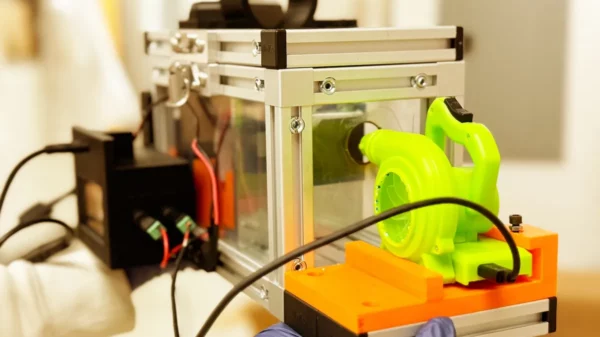By expunging nearly 500,000 pot-related convictions just before the new year, Illinois is showing how far behind Canada is lagging on the issue, says Toronto-based cannabis lawyer Jack Lloyd.
Before Illinois legalized recreational weed at the start of 2020, Governor JB Pritzker initially estimated it would take four years to start expunging 770,000 cannabis records. But his administration already granted 11,017 pardons by legalization day, and last week said the Lincoln State reached a milestone of 492,129 charges cleared.
Read more: Illinois becomes 11th state to legalize cannabis, grants 11,000 pardons
Meanwhile, over two years into federal legalization in Canada, only 368 record suspensions have been granted out of an estimated 10,000 citizens who are eligible for the national program. The issue isn’t a new one. Legal experts and advocates have been decrying the program’s embarrassingly low figures for over a year.
This article has been updated with response from the department of Public Safety Canada, which said Jan. 12 that record suspensions have increased to 368, from 265 reported in August 2020.

Toronto cannabis lawyer Jack Lloyd is also the president of advocacy group NORML Canada. Submitted photo
And while Illinois doesn’t have the authority to clear records relating to federal cannabis offences, the state is showing Canada a very clear and logical example of how expungement could work, Lloyd says.
“This isn’t federal reform in the United States, so it doesn’t set a legal precedent and it’s not binding on us in Canada,” he said in a phone interview. “But I think Illinois’ move here is still very laudable and persuasive — and it’s going to provide a bit of a framework for politicians here.”
Lloyd, who is also president of NORML Canada, says a core part of his group’s advocacy involves fighting for complete expungement of cannabis-related records in the country.
For thousands Canadians that still have criminal records for minor cannabis offenses, it’s difficult to get jobs, travel and have access to housing, education programs. And a disproportionate number of Canadians harmed by prohibition are Indigenous or people of colour.
“That simply shouldn’t exist any longer because cannabis is legal and the government has introduced a system for possessing and sharing and producing and selling it,” Lloyd said.
Advocates have been critical towards the federal government’s no-cost, expedited cannabis record suspension program because it has seen low adoption since it was introduced in 2019 under Bill C-93.
Read more: 80% of Canadians unaware of pot pardon program: survey
Read more: Only 265 of estimated 500K possession charges cleared in 1st year of government program
They say Ottawa hasn’t done a good enough job informing the public about the program, which isn’t even restoring justice because it only seals previous records for possession. If a Canadian who gets the so-called pot pardon later is charged with a different minor offence, the previous cannabis charge could be unsealed and put back on their record, Lloyd explains.
“It’s the smallest of possible steps,” he says. “And the Trudeau government put it out to the public, like they’re saving the world.”
From an administrative standpoint, Lloyd argues full expungement would significantly be less work than paying the Parole Board of Canada to run the program.

Pre-legalization statistics via the Centre for Addiction and Mental Health indicate that 500,000 Canadians have a criminal record for possession. Photo by Jared Gnam
And because Canada has a patchy framework of systems for filing criminal records that involves dated paper records, the vast majority of the 500,000 people across the country with cannabis records can’t even track down their actual convictions. Lloyd says some of those people are his clients, who are frustrated they can’t even apply to the government system.
“Even if the conviction doesn’t show up on any database, it still has a traumatic effect on people’s psyche nationally, particularly when you’re talking half a million people,” he says.
Last August, when Public Safety Canada said only 265 record suspensions have been ordered, it noted the low number may be due to the fact that people with other criminal convictions are ineligible for the program. Also, the the Covid-19 pandemic has slowed record suspension applications.
Last year the department said record suspension was chosen over expungement because the latter is intended for “extraordinary circumstances” where the crime was later considered historically unjust and the old law violated the Canadian Charter of Rights and Freedoms.
“This is not the case for convictions for simple possession of cannabis,” the federal agency said.
But Lloyd says the department’s argument is incorrect, pointing to how the prohibition of pot possession was most recently struck down by the Supreme Court of Canada in 2015 in the R. v. Smith case.
Mugglehead asked Public Safety Canada if it’s satisfied with the low level of record suspensions, and for a response to criticism why it hasn’t adopted an expungement program.
The department repeated that it believes record suspensions are the appropriate recourse for these convictions “as expungement is intended for circumstances where the criminalization of an activity was historically unjust.”
As far as making real change on the issue, Canadians are going to have to vote for it, Lloyd says.
Because criminal justice reform has been on people’s minds since the police killing of George Floyd last May, the cannabis lawyer hopes it will stay that way during the next federal election.
“We’re gonna have to let politicians know that this paltry record suspension program that they’ve offered — that nobody uses, and quite frankly, most people don’t even understand how to use — is unacceptable,” he said.
Top image at a Vancouver 4/20 cannabis rally in April 2013 by Jared Gnam
jared@mugglehead.com














